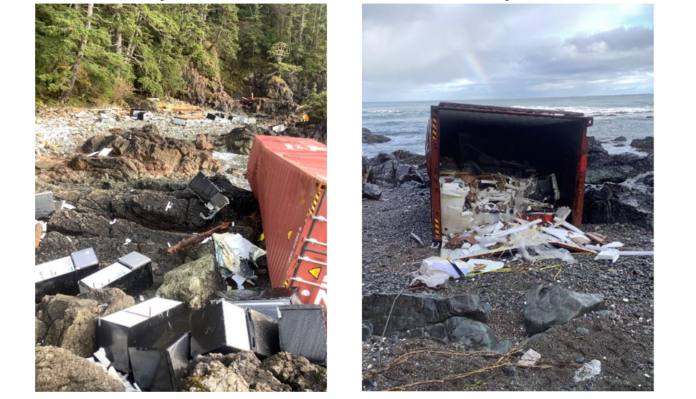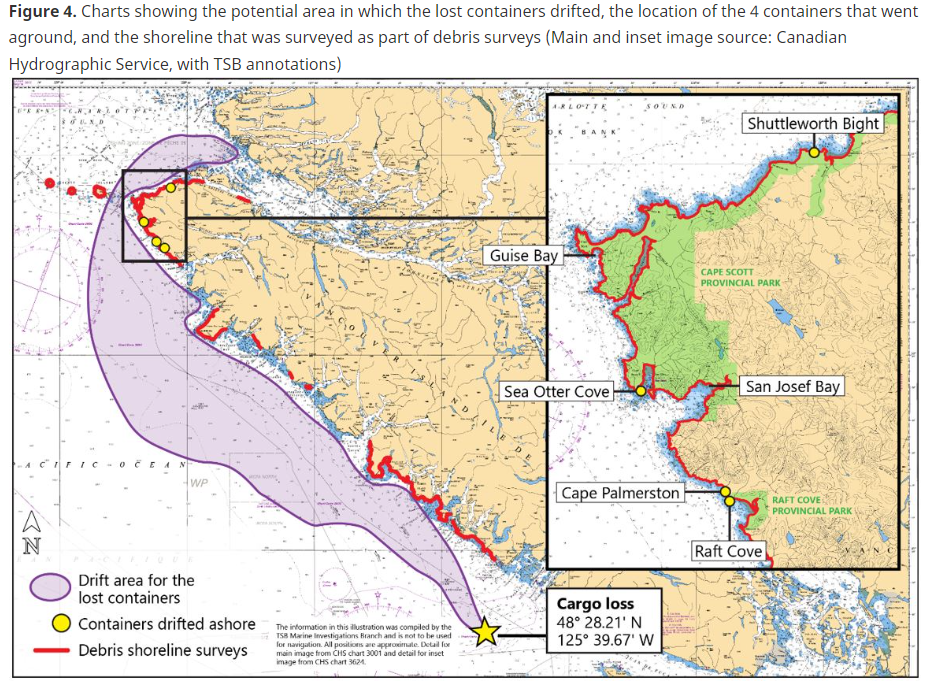The whole shipping industry needs better training, says the Transportation Safety Board after a cargo ship lost 109 containers off the Island’s west coast.
The board released its investigation report today into the ZIM Kingston incident from October 2021. While waiting for anchorage outside the Juan de Fuca Strait, the ship got caught in a series of violent side-to-side rolls, with containers breaking free. Some of them were later found as far north as Cape Scott.
The investigation concludes that international shippers need to better prepare crews for the wave-caused phenomenon, called parametric rolling.
Kathy Fox, chair of the Transportation Safety Board, said in a press conference that most of the lost containers likely sank, but others drifted, and will continue to have consequences for the environment.
“In total, an estimated 1,490 tonnes of cargo were lost overboard. Only around 48 tonnes were recovered during short-term clean-up efforts, which means that 97% of the debris remains in our waters or washed up on coastlines,” she said. “The volume and variety of contents lost overboard, as well as the general lack of studies on container spills, make it difficult to determine the long-term consequences that this and other such occurrences will continue to have on Canadian waters and coastlines.”
It also found the local response to marine fires was lacking. After anchoring near Victoria, one of the containers caught fire and spread aboard the ship, taking five days to extinguish.
“The emergency response that followed was initiated mainly due to incidental, but fortunate, circumstances. It is important not to mistake this luck for emergency preparedness, as the next time, we might not be as lucky,” Fox said. “There needs to be more urgent and effective action to address marine emergencies in Canadian waters.”
Unlike the United States, Canada does not require pre-arranged plans for emergency response or marine salvage. In addition, the Canadian Coast Guard does not directly participate in marine fire response, nor does it have fire suppression capabilities to directly respond to a vessel fire.
“In this occurrence, it was fortunate that the vessel’s manager had made pre-arrangements for emergency response and that only by happenstance were there two suitably equipped vessels nearby,” reads the report.
According to the report, some dangerous goods went overboard during the October 21, 2021 incident, including chemicals used in dying clothing, and a type of salt used in mining.
The board concludes the incident shows Canada needs to beef up its marine capabilities.
“the Board is concerned that there are gaps in Canada’s preparedness for marine emergencies that exceed the response capacity of a vessel’s crew, posing a risk to vessels, the environment, and the health and safety of the general public,” the report says.







